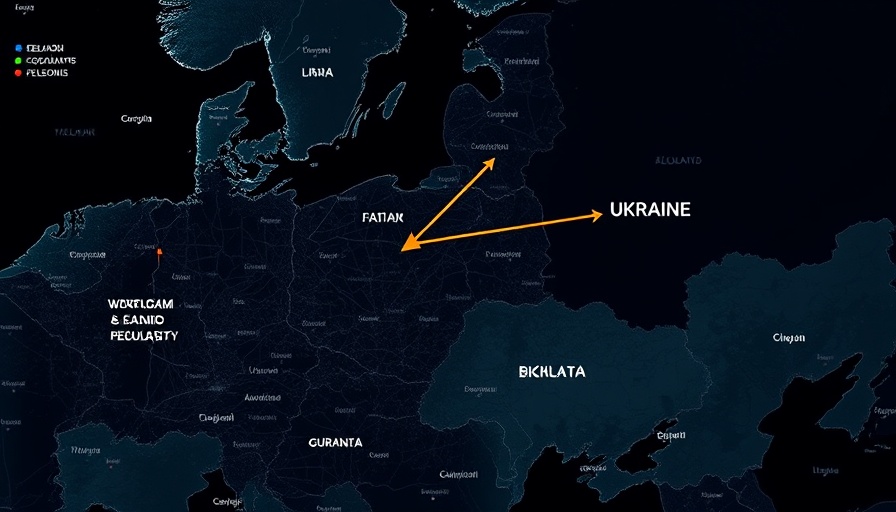
The New Era of Space Warfare: Exploring Its Implications
As global tensions rise, the "space race" has transformed into a fierce competition among powerful nations to dominate the final frontier. No longer confined to mere exploration, space is now viewed as a strategic battleground where advanced technologies and military capabilities are at play. Understanding this new facet of warfare is crucial for those looking to make sense of global conflicts.
In 'The Space Wars are Finally Here', the discussion dives into the pivotal issues of militarization and competition in space, exploring key insights that sparked deeper analysis on our end.
Rewinding the Clock: Historical Context of Space Militarization
The militarization of space began in the backdrop of the Cold War, primarily between the United States and the Soviet Union. Both superpowers accelerated their efforts to place satellites in orbit, not solely for scientific achievements but predominantly for surveillance and intelligence. Fast-forward to today, and that cold rivalry has morphed into a heated competition with nations like China rapidly advancing their space capabilities.
Modern Space Technologies: A New Level of Defense
Today’s militaries rely heavily on space assets for navigation and reconnaissance. Thousands of satellites provide critical data for military operations. The United States Space Force epitomizes this shift, reclassifying space as a warfighting domain. With satellite technology evolving rapidly, the potential for conflict in space is unavoidably rising.
Innovations Fueling the Space Arms Race
Innovative concepts like the infamous "Rods from God"—tungsten rods dropped from orbit—illustrate the disturbing reality that military leaders are exploring efficient, non-explosive ways to inflict damage. Moreover, the emergence of drone-filled capsules and satellite-armed missiles has redefined how nations can target and neutralize threats from other countries. These technologies underscore a paradigm shift in military strategies.
Geopolitical Tensions: The Rivalry Between the U.S. and China
The escalating rivalry between the U.S. and China has brought military operations into space to the forefront of global security discussions. As China enhances its space capabilities, including satellite maneuvering and potential anti-satellite weaponry, the U.S. is compelled to refine its response strategies to safeguard its interests in space.
Consequences of Wild West Politics in Space
The current lack of a solid international framework governing space activities has made the cosmos an arena where anything goes. The potential for chaos increases with both China and Russia vying for space dominance. If serious and effective regulations are not established, we may witness devastating consequences for nations worldwide.
What This Means for Global Peace and Future Generations
Space is more than just an abstract realm; it harbors fundamental questions about global safety and the future direction of international relations. For those invested in peace and stability, understanding these developments is essential.
In conclusion, as nations prepare for potential conflicts in space, it is imperative for governments and citizens alike to recognize how these decisions and technologies will resonate down to Earth. Engaging in open dialogues and cooperative strategies is vital to ensuring that the ongoing space race does not lead to destructive consequences for humankind. As we head into this new frontier, awareness and proactive measures are crucial.
For readers passionate about history and the implications of global conflicts, it's time to elevate your understanding of space warfare and its impact. Stay informed and engaged in discussions surrounding these critical topics.
 Add Row
Add Row  Add
Add 


 Add Row
Add Row  Add
Add 

Write A Comment